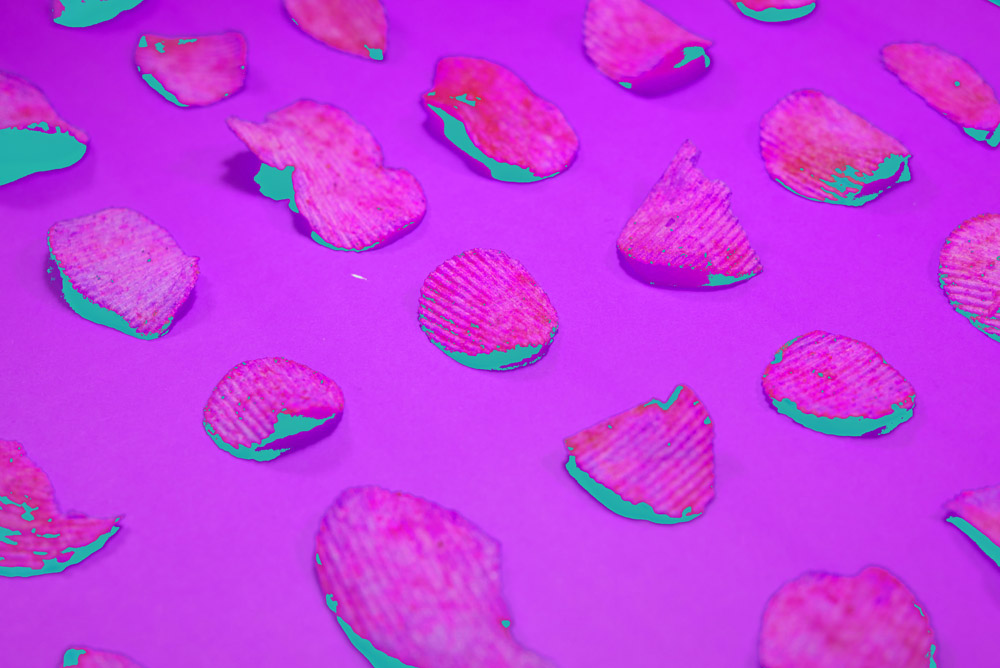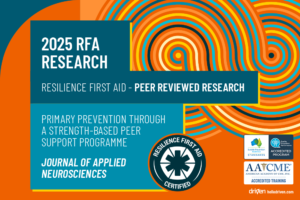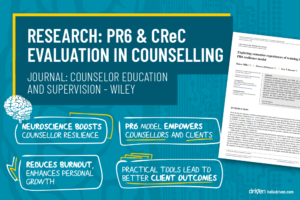How exactly we collectively decided that pink/purple is the colour for salt and vinegar chips is one of those enduring Australian mysteries. Still, the bright packaging tells of the dangers that lie beneath – flavouring so intense that your lips will still be tender for days if you dare eat the whole pack.

In our office lurks such a bright pink pack of salt and vinegar rice crackers. Now and then, a wild cracker appears with so much loose powdered salt and vinegar that it would make a scar-faced Tony Montana blush. The acidity burns away at the tastebuds, overstimulating nerves while sucking moisture out of the cells. Still, we love these – best eaten with the flavouring side down so it can make direct contact with unsuspecting tastebuds.
C'EST LA VIE, TASTEBUDS
For the unprepared, it can be a bit much. Although, it’s less traumatic than a first-timer using copious amounts of Vegemite because they thought it would taste like Nutella. Here the convenient sizing of chips helps us to dip our tongues slowly into the world of industrial flavouring, allowing us to gradually appreciate the pleasure that comes with the pain of salt and vinegar. Do we lament our numb tongues? Nay, we reminisce in how good it tasted.
This appreciation that we build through small bites teaches us about mental health. After all, what’s the biggest mistake we make with building resilience? It’s that we don’t pay attention to it until after something bad has happened. In so many workshops, I’ve talked about this tendency and how it impacts the brain.
The problem with having a reactive approach is in how it affects the brain. We need only look to our old friend the Limbic Brain (LB), which controls the fight-flight-freeze response. When something bad happens to us, the LB activates and creates an emotional response.
The magnitude of this emotional response depends on the level of activation. Anything from a mild annoyance for a minor activation, through to extreme activation that causes a traumatic experience that can take decades of therapy to work through. Yes, that’s what the LB can do.
WHATEVER WILL BE, LB?
Are we only beholden to the whims of the LB? Our tastebuds hold the answer. That first-timer taking a big bite of Vegemite to the disbelief of the locals will experience a much higher activation of the LB, triggering emotions of disgust that has evolved over millions of years to help us avoid food poisoning. However, the bites of salt and vinegar comes more gradually, bringing with is a slight burn yet also triggering reward systems in the brain, implicitly teaching us the value of eating more despite the nervous sweating of our tastebuds.
This exact conditioning is what proactive building of resilience looks like in the brain – neural pathways building between various neural structures to tell the LB to stay quiet cause this tastes good. It means that later on when you face challenges, your brain is better connected causing your LB to downregulate. You find yourself not as worried, thinking more clearly, and taking bites of life in your stride.
PASS THE CRACKERS
As amusing as it is to watch someone try Vegemite for the first time, there’s a problem with our connected mentality – we tend to only care when someone is really struggling. Most mental health spending goes into treatment. A little into early intervention, with far less into true proactive care.
Though the value of being proactive is profound – a little work ahead of time reduces the potential activation of the LB, reducing personal trauma, reducing suffering, and the added bonus of less burden on the healthcare system. From the brain’s perspective, prevention is 10 times better than cure.
We all have this responsibility, to proactively build our own resilience, not only for ourselves but also so we can care for those around us and build their mental health even while they are well. We all have a responsibility to be proactive in life.
And so, we come to see the bright pink signs of burning acidity in life, and through small bites we learn to appreciate those times when our minds might feel numb for a while afterwards, because we remember how good it was and will be again.
Stay resilient,
Jurie



